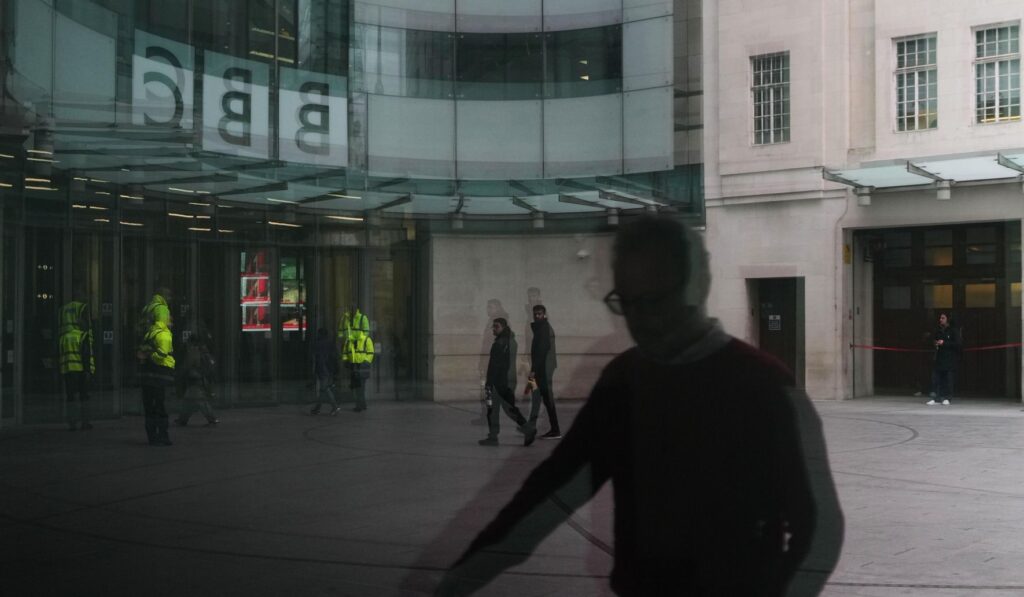The BBC is reeling from an editing scandal that could cost the British broadcaster $1 billion and has already claimed two top executives. The story has triggered urgent reviews, public anger, and questions about who knew what and when.
The revelations began with routine editorial checks that quickly snowballed into a corporate crisis. Investigations showed that altered footage and misleading edits were used in high-profile reporting, prompting immediate internal probes. Viewers and regulators alike demanded answers when the scope of manipulation became clear.
Senior leaders moved to contain the damage, but two executives lost their jobs as pressure mounted. Those departures signaled the organization saw the issue as a leadership failure rather than isolated mistakes. Critics argued that the shakeup was overdue, while defenders said it was an initial step toward accountability.
Financial consequences escalated as potential legal claims and compensation demands surfaced, driving the $1 billion figure into public debate. That number reflects projected payouts, legal fees, and reputational costs tied to lost audience trust and licensing challenges. While exact totals remain speculative, analysts warned the bill could reshape budget priorities for years.
Key questions focused on editorial controls and the chain of command that allowed altered material to air. Sources inside the broadcaster described a climate where editorial corners could be cut under deadline pressure. Those accounts raised concerns about whether systemic problems, rather than a few bad actors, were to blame.
Regulatory scrutiny intensified as media watchdogs and parliamentary committees signaled they would examine compliance and governance failures. Formal inquiries are expected to probe decision-making layers, archivist practices, and how verification processes broke down. Any findings could lead to fines, governance reforms, or stricter oversight arrangements.
Internally, staff reactions ranged from anger to defiance, with many journalists calling for clearer standards and stronger safeguards. Newsroom morale suffered as reporters worried the scandal could undermine credible reporting for unrelated stories. At the same time, some teams doubled down on transparency, publishing corrective notes and procedural updates to rebuild confidence.
External voices were equally unforgiving, with politicians, media commentators, and former staff accusing the broadcaster of losing sight of basic journalistic duties. Public debate touched on broader issues about impartiality, state-funded media, and what audiences should expect from a national institution. These conversations intensified as the broadcaster worked to lay out corrective steps.
The broadcaster announced a series of reforms aimed at tightening editorial oversight, improving training, and boosting transparency around source material. Leadership promised to publish timelines of events and to cooperate fully with independent reviews. Observers cautioned that reforms alone won’t restore trust without demonstrable changes in everyday editorial practice.
Legal experts noted potential exposures beyond immediate fines, including class-action suits from affected parties and contractual disputes with partners and distributors. Insurers and stakeholders began recalculating their risk assessments, and credit-watchers flagged the possibility of rating impacts if liabilities escalate. The fiscal fallout could extend into programming cuts or postponed initiatives.
The scandal also reignited debates about how public broadcasters balance speed with verification in a 24/7 news cycle. Some media scholars argued the crisis is a cautionary tale about automation, outsourced editing, and overreliance on unvetted sources. Others suggested it could accelerate investments in verification tools and editorial training across the industry.
As investigations continue, watchdogs and the public will be watching for clear evidence that governance and culture have changed. The broadcaster faces a long road back to restoring credibility with audiences, funders, and partners. The coming weeks will reveal whether the responses so far are the start of meaningful reform or merely short-term damage control.




1 Comment
This TDS is getting expense and it serves these morons right. The liberals are constantly misleading the public with their hate!